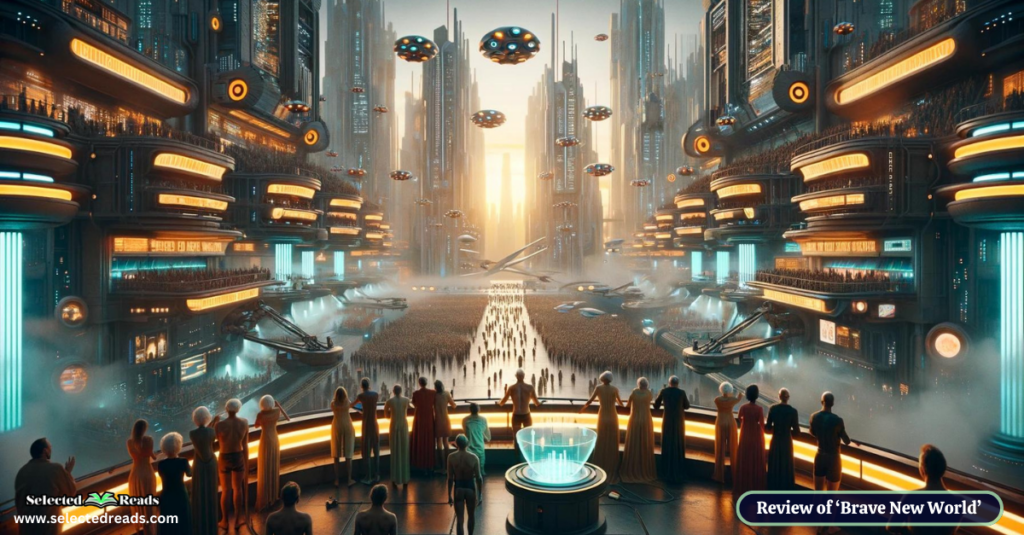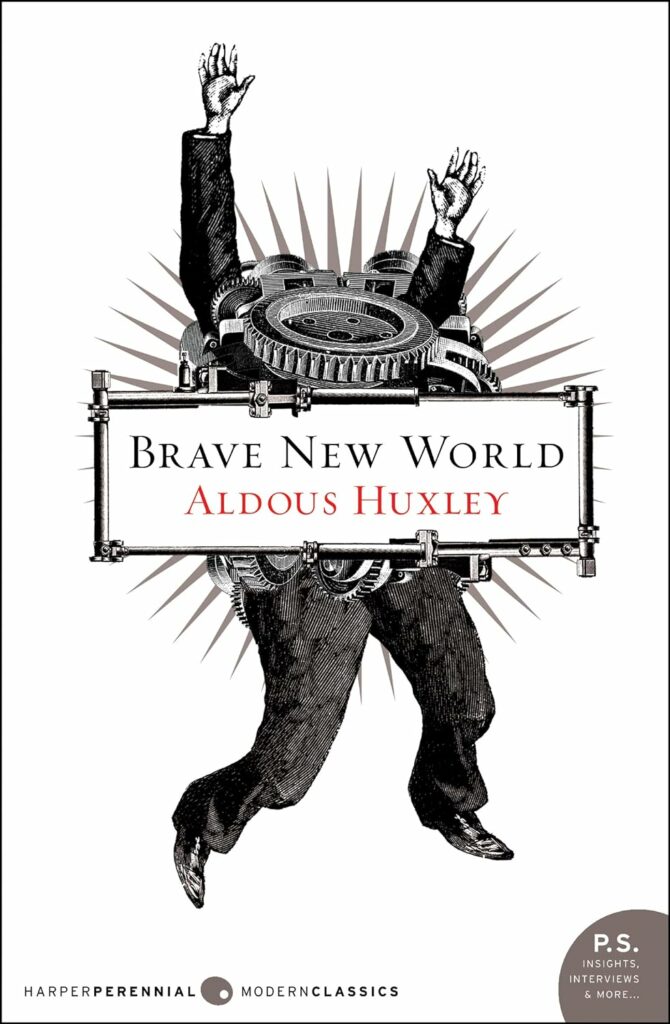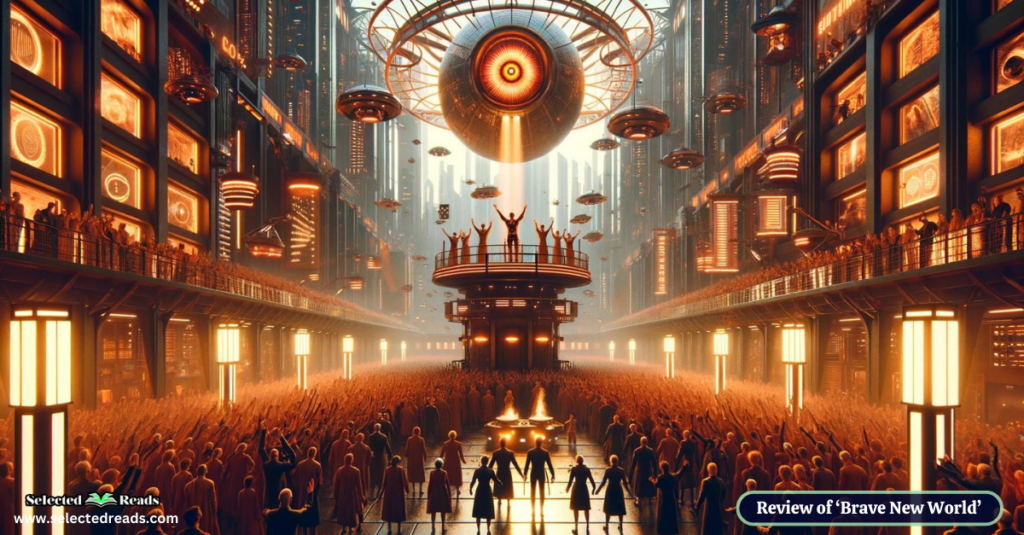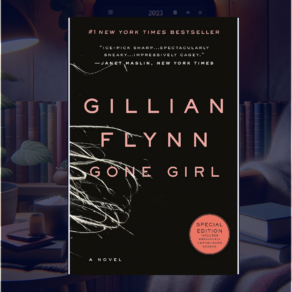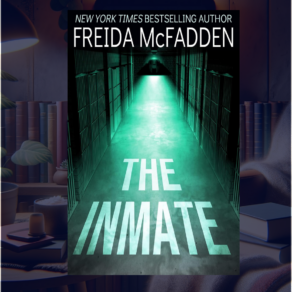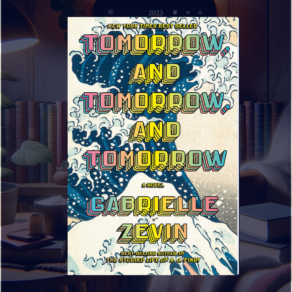In the literary landscape of the 20th century, few novels have sparked as much discussion and analysis as Aldous Huxley’s “Brave New World.” This masterpiece, with its vivid depiction of a dystopian future, continues to resonate with readers and thinkers alike, offering a profound critique of our society’s reliance on technology, our pursuit of artificial happiness, and the potential loss of our most cherished human values.
In this post, we’ll delve deep into the intricate world Huxley has crafted, starting with an extended summary that aims to capture the essence and breadth of the novel’s narrative. We’ll then introduce you to the key characters who inhabit this world, each embodying the novel’s critical themes and moral quandaries.
Understanding “Brave New World” is not complete without unpacking the rich themes Huxley weaves throughout the text. From the sacrifice of freedom for the illusion of stability to the dehumanizing effects of technological advancement, these themes offer a mirror to our own world’s challenges and ethical dilemmas.
Finally, for those eager to dive deeper into discussion, whether in classrooms, book clubs, or casual gatherings, we’ll provide a set of thought-provoking book club questions. These questions are designed to spark debate and reflection, encouraging readers to consider not just the world Huxley imagined but also the direction our own world is taking.
Related: The Handmaid’s Tale Summary, Characters, and Book Club Questions
Brave New World Summary
“Brave New World,” Aldous Huxley’s seminal novel, offers a prophetic vision of a future where societal stability and technological convenience have been achieved at the expense of individual freedom and human depth. Set in a seemingly utopian world devoid of pain, suffering, and conflict, the narrative reveals the dark underpinnings of this society: a systematic suppression of personal identity, the eradication of emotional depth through pharmacological means, and an overarching control exerted through genetic engineering and indoctrination.
At its core, “Brave New World” is a critique of the pursuit of happiness as the ultimate societal goal, questioning the value of a happiness that is artificially manufactured and maintained. It juxtaposes the human condition’s richness—marked by individuality, emotional complexity, and the capacity for artistic and spiritual experience—against a sterile world where such traits are deemed obsolete.
Photo: Amazon
Huxley’s world is one where the concepts of family, religion, and art have been redefined or eradicated to ensure the smooth functioning of society. It’s a world that prioritizes efficiency, conformity, and consumerism, suggesting a future where humanity has sacrificed the very things that make life meaningful in the pursuit of an untroubled existence.
Through its exploration of themes like technological control, the loss of individuality, and the manipulation of desires and needs, “Brave New World” serves as a cautionary tale about the dangers of relinquishing too much power to technological advancements and allowing societal norms to be dictated by a desire for comfort and simplicity.
Ultimately, “Brave New World” challenges readers to reflect on the nature of happiness, freedom, and the human spirit. It prompts a critical examination of our values and the direction of our technological and societal evolution, urging us to consider what we might be willing to sacrifice in the quest for a perfect world.
Brave New World Characters
In Aldous Huxley’s “Brave New World,” the narrative unfolds through the lives of several key characters, each embodying different aspects of this dystopian world. Let’s delve into some of the primary characters:
- Bernard Marx: Bernard serves as one of the central characters, notable for his physical and intellectual divergence from societal norms. Despite being an Alpha Plus, the highest caste in society, Bernard feels isolated due to his uncharacteristic short stature and independent thinking. His dissatisfaction with the superficial happiness of society leads him to question its values and ultimately brings him into conflict with its foundational principles.
- Lenina Crowne: A technician in the Hatchery and Conditioning Centre, Lenina is a conventional citizen, thoroughly indoctrinated by the World State’s ideologies. Her relationship with Bernard and later with John the Savage highlights the conflict between individual desires and societal expectations. Lenina’s character illustrates the complexities of conditioning and the struggle for genuine human connection in a world that discourages emotional depth.
- John (the Savage): Born outside the World State in the Savage Reservation, John represents the clash of cultures between the primitive and the technologically advanced. His upbringing, influenced by Shakespearean ideals and the values of the Reservation, contrasts sharply with the World State’s principles. John’s struggle to find his place in the new world, coupled with his disillusionment and eventual tragedy, critiques the cost of societal “progress” on individual identity and freedom.
- Mustapha Mond: As one of the World Controllers, Mond embodies the power and intellect behind the governance of the World State. He understands the historical and philosophical underpinnings of the society he helps maintain, including the sacrifices made for stability and happiness. His discussions with John the Savage about freedom, happiness, and the sacrifices necessary for societal harmony reveal the complexities of the choices made by those in power.
- Helmholtz Watson: A friend of Bernard, Helmholtz is an Alpha Plus lecturer at the College of Emotional Engineering. Despite his success and social standing, he feels a sense of emptiness and a desire for a deeper purpose, leading him to question the values of his society. Helmholtz’s character explores the theme of intellectual and artistic freedom in a world that values conformity and superficial happiness.
Brave New World Themes
Here are the main themes that encapsulate Huxley’s critique of a future world where humanity is compromised by the very attempts to perfect it.
- The Sacrifice of Freedom for Stability: Central to the novel is the trade-off between individual freedom and societal stability. Huxley presents a world where peace and stability are achieved through the suppression of individuality and the elimination of personal choice, prompting readers to question the true cost of a utopian society that prioritizes harmony over freedom.
- Technological Domination and Dehumanization: The theme explores the consequences of letting technology govern human life, highlighting how scientific advancements, when not ethically guided, can strip humanity of its essence. Through genetic engineering, psychological manipulation, and the suppression of natural emotions, the novel warns of a future where humans become mere cogs in a highly efficient but soulless machine.
- The Illusion of Happiness: Huxley critically examines the concept of happiness in a society where it is artificially manufactured and maintained through drugs (soma), constant entertainment, and shallow pleasures. This theme challenges the notion of happiness, suggesting that true contentment might require suffering, struggle, and the freedom to experience a full range of human emotions.
- Consumerism and Environmental Neglect: The novel critiques a consumer-driven society that encourages endless consumption and disposability, leading to environmental degradation and a loss of connection to the natural world. Huxley’s portrayal of a world obsessed with newness and disdainful of nature serves as a caution against the unsustainable practices of modern consumerism.
- The Loss of Human Connection and Individuality: Throughout the novel, characters grapple with feelings of alienation and dissatisfaction, despite living in a society that claims to have eradicated unhappiness. The theme reflects on the deep human need for genuine relationships, meaningful work, and the expression of individuality, which are all sacrificed for the sake of societal efficiency and conformity.
Brave New World Book Club Questions
Here are some questions that could spark interesting discussions:
- Exploration of Utopia vs. Dystopia: “Brave New World” is often classified as a dystopian novel, but it presents a society that believes itself to be a utopia. Discuss the characteristics that define it as one or the other. What elements of the World State might some consider utopian, and why do they ultimately contribute to a dystopian society?
- Role of Technology and Science: How does Huxley depict the role of technology and science in society? Consider the use of reproductive technology, psychological conditioning, and pharmacological intervention. What warnings does Huxley offer about the use of technology in managing human societies?
- Individuality vs. Conformity: The novel presents a society where individuality is suppressed for the sake of social stability. Discuss how the characters of Bernard Marx, Helmholtz Watson, and John the Savage struggle with this suppression. What does their resistance suggest about the value of individuality?
- The Use of Soma: Soma is a central symbol in the novel, representing the use of drugs to suppress dissent and ensure happiness. What parallels can you draw between the use of soma in the novel and the use of drugs or technology to manage emotions and behavior in today’s world?
- Happiness and Freedom: Mustapha Mond argues that true freedom is the enemy of happiness in a stable society. Do you agree with this perspective? Discuss the trade-offs between happiness and freedom as presented in the novel. Can a society achieve both, or is it always a zero-sum game?
- The Role of Art and Literature: John the Savage’s affinity for Shakespeare plays a significant role in the novel. What does Shakespeare represent in the context of the World State? Discuss how art and literature are viewed in the society of “Brave New World” and their importance for human experience.
- Consumerism and the Economy: The World State maintains stability through consumerism and constant economic activity. How does the novel critique the role of consumerism in society? Discuss the implications of valuing economic stability over other aspects of human life.
- Social Conditioning and Education: Consider the methods of conditioning used in the World State. How do these methods shape the citizens’ perceptions of happiness, freedom, and their societal roles? Discuss the implications of such conditioning and its parallels in our educational systems today.
- Nature vs. Nurture: “Brave New World” delves into the nature vs. nurture debate through its depiction of genetic engineering and social conditioning. Discuss how the novel addresses this debate. What stance does it seem to take on the influence of genetics and environment on human behavior?
- The Ending: The conclusion of “Brave New World” is both tragic and thought-provoking. Discuss your reactions to the novel’s ending. What message do you think Huxley is trying to convey about the possibility of change or resistance in a society like the World State?
Final thoughts
Huxley’s dystopian vision, rich in detail and complexity, serves as a cautionary tale about the dangers of unchecked technological advancement, the erosion of individual freedoms, and the pursuit of a superficial form of happiness at the expense of true human connection and emotional depth.
Through our extended summary, we’ve navigated the intricacies of Huxley’s imagined world, a society that has sacrificed its humanity for the sake of stability and efficiency. The characters we’ve met along the way, from the discontented Bernard Marx to the tragic John the Savage, offer varied perspectives on the cost of conforming to—or rebelling against—this meticulously engineered society.
The themes we’ve unpacked together reveal Huxley’s deep concerns about the potential for human society to lose sight of its core values in the face of technological and scientific progress.
Finally, the book club questions we’ve proposed are designed to spark further reflection and discussion, encouraging readers to engage with the novel on a deeper level and to consider its implications for our own time.
In sum, “Brave New World” remains a critical mirror reflecting our hopes and fears about the future. It offers both a warning and an invitation to examine the choices we make as a society.



